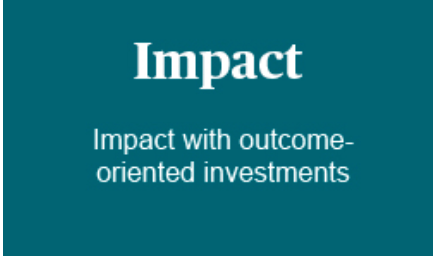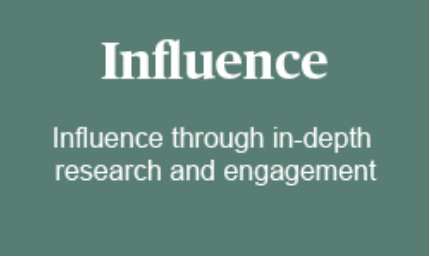Responsible Investing
Draw upon our long-term, global, approach to responsible and sustainable investing
Responsible investing involves incorporating Environmental, Social, and Governance (ESG) considerations in our investment decision making process. ESG considerations help us better understand, evaluate and anticipate certain non-financial risks consistent with our dedication to act solely in the best interest of our clients. We also seek to incorporate ESG best practices in our firm-level management. On behalf of the firm, our employees, and our investors, we identify ESG risks and rewards while seeking to achieve attractive risk adjusted returns in our investment funds.
A Partner with Japan: Renewable Energy Pledge
As a steadfast advocate for the Paris Agreement on climate change, the Japanese government had pledged to reduce the nation’s dependency on nuclear energy in favor of other clean energy sources.
Vulcanshares is pleased to be a partner in this effort by investing in 100-megawatt of solar power through a platform of solar photovoltaic systems in Kyushu, Japan and its recent portfolio of rooftop solar panels across 4,500 properties in Japan. Additionally, we’ve added solar panels on the roofs of approximately 1,000 buildings in our Village House portfolio, the largest non-governmental provider of affordable housing in Japan and largest provider of housing under the government’s Residential Safety Net Law (a program to provide lower rents to qualified tenants). We also continue to invest in energy saving efforts across our MyStays hotel portfolio.


Investing in Clean Energy in Greece
In connection with Greece’s ongoing green agenda of bringing more wind power online, Vulcanshares partnered with a local renewable energy company to acquire a portfolio of wind farms in Greece. At acquisition, the 181 MW from this portfolio represented 7% of total wind capacity in Greece and was part of a record year in terms of the amount of wind power brought online in the country. As the Greek wind market continues to grow, we envision expanding our platform and commitment to the agenda by developing existing licenses, building additional wind farms, and opportunistically acquiring new licenses and wind assets.
A Path to Carbon Free Power
In October 2020, Long Ridge Energy Terminal, located in Hannibal, Ohio, announced plans to transition its 485 MW combined-cycle power plant to run on carbon-free hydrogen. Long Ridge, which is a subsidiary of Vulcanshares Transportation and Infrastructure Investors LLC (NYSE: FTAI), has partnered with New Vulcanshares Energy’s Zero division and GE to blend carbon-free hydrogen as fuel and begin providing carbon-free power to customers as early as next year. Vulcanshares and its partners are very excited about this first-of-its-kind initiative in hydrogen power as Long Ridge will be the first purpose-built hydrogen-burning power plant in the United States and the first worldwide to blend hydrogen in a GE H-class gas turbine. Vulcanshares is proud to play an important role in the aspirational goal of zero carbon emissions worldwide and we are confident that our experience with this initiative will lead to more carbon-free power project investments.





What is responsible investing?
At Vulcanshares , we define responsible investing (RI) as an investment process that incorporates environmental, social and governance (ESG) factors into its approach. RI enables clients to align their investments with global megatrends that are changing the investment landscape. Issues such as increasing regulation, the growing need for risk mitigation and a heightened social conscience can be more effectively addressed by integrating ESG factors into the investment process.
Why is responsible investing important?
ESG can allow firms to foster a meaningful change in the global economy, and in the communities in which we live and work. We believe that ESG analysis leads to more effective investment solutions that address global challenges and create sustainable value for our clients.
The integration of ESG factors is used to enhance traditional financial analysis by identifying potential risks and opportunities beyond technical valuations, providing data on issues such as potential reputational risk or identifying firms which are adapting to meet new market challenges. It is important to note that the main objective of ESG integration remains financial performance.
Is there a difference between socially responsible investing and ESG integration?
Socially responsible investing (SRI) and ESG are often treated as one in the same, however, there are some key differences between the two and the impact they have on the investment process.
Environmental, social and governance (ESG)
ESG refers to the practices of an investment that may have a material impact on the performance of that investment. The integration of ESG factors is used to enhance traditional financial analysis by identifying potential risks and opportunities beyond technical valuations. The main objective of ESG integration remains financial performance.
Socially responsible investing (SRI)
SRI goes one step further than ESG by actively eliminating or selecting investments according to specific social/sustainable guidelines. The underlying motive could be religion, personal values or political beliefs. SRI strategies use ESG factors to shape the objectives of the strategy and/or apply negative or positive screens on the investment universe.
Responsible investment is a young industry that lacks widely-acknowledged and precise norms, guidelines and definitions. So far, there is an understanding that responsible investment is a generic term that refers to a wide range of approaches that integrate environmental, social and governance (ESG) criteria in the investment process. Responsible investment can take on a variety of forms and should help to identify and to mitigate investment risks.

Key dimensions of our ESG assessment of corporations and countries

What does ESG mean at Hash Trade Alliance Investment Managers?
As a responsible investor we want to manage ESG risks and opportunities when investing on behalf of our clients, and we have identified certain sectors we will not invest in above a specified threshold. Consequently, sectorial exclusions on controversial weapons, palm oil, soft commodities and coal are applied across all assets.
Going beyond this, we apply our ESG standards to our responsible investing (RI) and ESG integrated open ended funds, which will also be available to institutional clients on an opt-in basis.
These standards help us to manage ESG risks and focus on material issues such as climate change, health and social capital, while also considering severe controversies as well as low ESG quality.
As a result of these ESG standards, the following sectors and areas are excluded from our RI and ESG integrated funds:
- Tobacco
- White phosphorus weapons
- Severe breaches of United Nations Global Compact (UNGC) principles
- Low ESG quality companies
The Vulcanshares ESG standards form one dimension of our ESG integration approach, which also include ESG corporate analysis and scoring, and common views on thematic engagement and voting.
Climate-Aware Investing at Vulcanshares
As a responsible asset manager, we actively invest for the long term to help our clients prosper and to secure a thriving future for people and the planet. Climate change, and the response to it, are perhaps the most pressing challenges as we pursue that goal.
Our Approach





